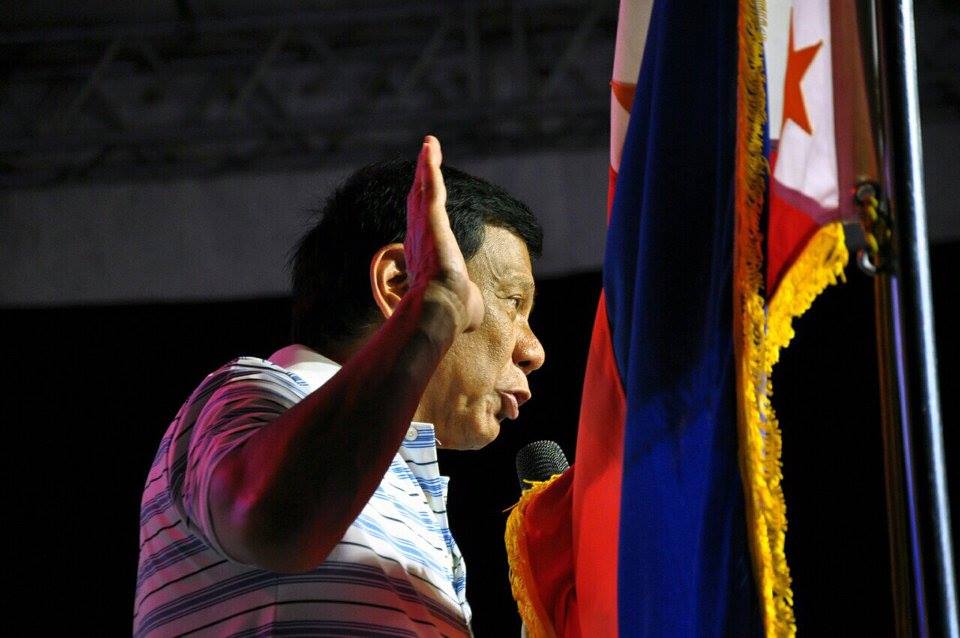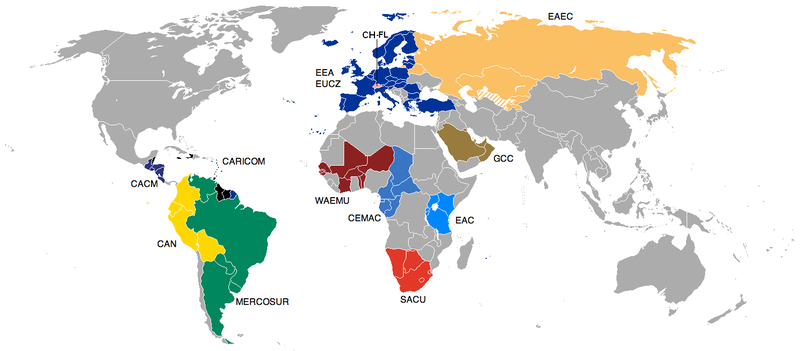
It’s hard not to think of Rodrigo Duterte as the Donald Trump of the Philippines.![]()
But in truth, he’s more like Joseph Arpaio — a conservative, tough-on-crime kind of guy willing to do whatever it takes to clean up his city, human rights or the justice system be damned.
At age 71, ‘Rody’ Duterte, who has served for a total of 22 years as mayor of Davao City, has vaulted to a lead in the polls to become the leading presidential choice among voters in the Philippines when they go to the polls on May 9. It’s an election in which Philippines might turn from liberalism to illiberalism not only by electing a Duterte presidency, but also by supporting the restoration of the Marcos family — the son of Ferdinand Marcos, the country’s autocratic ruler from 1965 to 1986, is running for the vice presidency as well.
Duterte is a presidential candidate with tough talk on crime, corruption
Known domestically as the ‘punisher,’ Duterte is not a man to cross. He brags about killing criminals, especially drug dealers, with his own gun, taking extrajudicial justice into his own hands where he sees fit. He openly admitted last November to killing three rapists and kidnappers in Davao City, and he said last week that he would kill his own kids if he found out they were using drugs. Duterte has trekked across the country delivering a fiery nationalist stump speech, often with his fist raised in the air, a variant of which serves as his campaign logo. It’s not a subtle appeal Duterte is making to supporters, who also casually refer to him as ‘Duterte Harry.’
For the United States, the Philippines figures heavily in the growing US strategic and military interest in the Pacific Rim, and the outgoing Obama administration hopes that, in particular, the Trans-Pacific Partnership (TPP) will draw the Philippines closer to the United States and further, economically speaking, from China. Today, officials in the administrations of both outgoing US president Barack Obama and outgoing Philippine president Benigno ‘NoyNoy’ Aquino III view the growing cooperation as mutually beneficial.
In no uncertain terms, a Duterte victory next Monday in the presidential election would make US-Philippine relations much more difficult.
It’s not a small matter. The Philippines is the world’s 12th-most populous country, with 103 million people and growing.
Davao City, the fourth largest in the country, lies in the far tropical south, and Duterte has presided over its transformation from a hub for communist and left-wing radicals to a case study in law and order. In a country where everyone seems to be worried most about corruption and crime, Duterte and reports of how he’s tamed Davao City over 20 years in power have captured the national zeitgeist. Elected to national office just once (18 years ago) throughout his decades-long career, Duterte can also style himself as an outsider, relatively speaking. Like most politicians in the Philippines, Duterte comes from an influential family — his father was an attorney and a former governor of what used to be Dávao province.
But that’s where the similarity to most Philippine politicians ends.
Braggadocio about personally killing drug dealers in Davao City and his ‘take no prisoners’ approach to anti-crime efforts have touched a chord with voters. Reporters questioned him when he kicked off his campaign last December about organizing death squads and killing over 700 people; Duterte responded (only half-jokingly) that he had killed more like 1,700 people. Continue reading Philippines considers both presidential strongman, Marcos restoration
